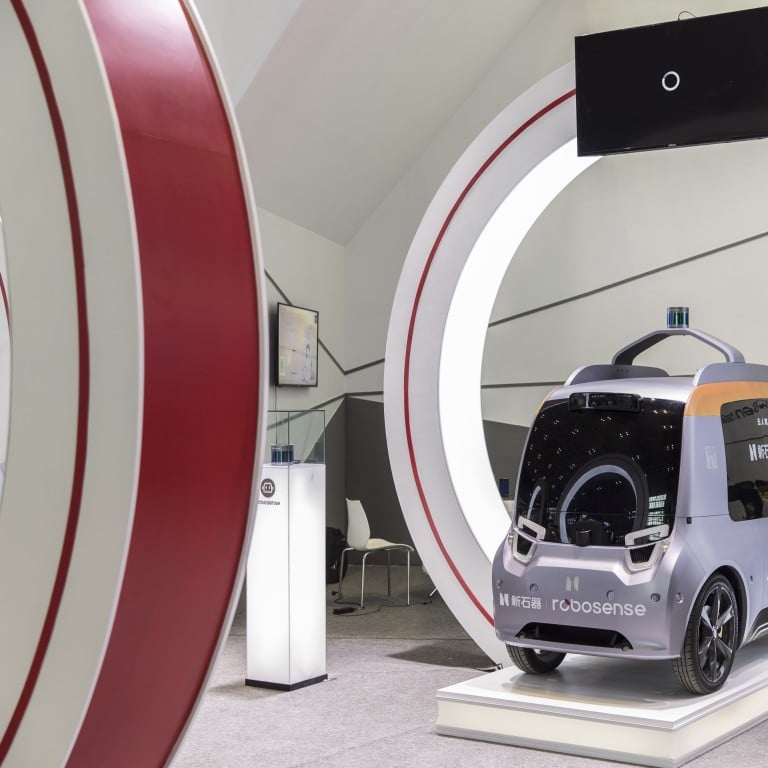
Baidu to build self-driving test facility in Chongqing as the Chinese city pushes ahead with smart city infrastructure
- The 52 million yuan (US$7.3 million) project includes building road infrastructure with embedded sensors and traffic signal control systems
- Upon completion, the facility is expected to be able to host spontaneous test drives for over 100 Level 4 autonomous cars
China’s Chongqing city government has tapped search giant Baidu to build a testing ground for autonomous vehicles, as Chinese cities race to prepare for smart infrastructure and a driverless future.
The 52 million yuan (US$7.3 million) project includes building road infrastructure with embedded sensors, traffic signal control systems and developing edge computing and data storage capabilities, said Baidu in a statement on Thursday.
Upon completion, the 20-square-kilometre open area in the Yongchuan district of the city is expected to be able to host spontaneous test drives for over 100 Level 4 autonomous cars, covering all urban driving scenarios.
Level 4 autonomous vehicles are cars that can achieve fully autonomous driving but might require human intervention in some circumstances.
The joint announcement comes after Baidu signed a collaboration agreement with the Chongqing municipal government in August to support the southwestern city’s transformation into a national hub for various smart city technologies.
Baidu staffer jailed for mining US$14,000 worth of bitcoins with company servers
Known as a Chinese city with high levels of traffic congestion and camera surveillance, Chongqing also has some challenging urban features for motorists, including hills and lots of building with extensions. In Yuzhong district, for example, there is a 24-floor building without a lift with three exits that lead out onto three separate streets.
As such, Baidu said the city’s special terrain is a fit for “all-round self-driving tests”.
In recent years, Chongqing has also moved ahead with the development of 5G, big data and artificial intelligence. The city is expected to see total investment of 2.7 trillion yuan this year in areas including smart transport and telecommunications.
Autonomous cars are high on the development agenda for both the US and China, but the technology has been hard to perfect as navigating in busy, real-world environments is difficult.
Baidu’s tie-up in Chongqing comes amid news it has jumped into the top five autonomous driving technology companies in Navigant Research’s annual survey for the first time, trailing only Google’s self-driving unit Waymo, Ford and Cruise, according to the US publication.
Baidu was the only Chinese company labelled as an industry “leader”, while Navigant Research’s leader board put companies including Toyota, Hyundai’s partnership with Aptiv and Volkswagen Group as “contenders”. Tesla was ranked as a “challenger”, according to the survey.
Nasdaq-listed Baidu also outranked Waymo in the latest test driving reports submitted to California’s state Department of Motor Vehicles. The Beijing-based company recorded human intervention in its autonomous cars only once every 18,000 miles, compared with Waymo’s once every 13,000 miles.
Purchase the China AI Report 2020 brought to you by SCMP Research and enjoy a 20% discount (original price US$400). This 60-page all new intelligence report gives you first-hand insights and analysis into the latest industry developments and intelligence about China AI. Get exclusive access to our webinars for continuous learning, and interact with China AI executives in live Q&A. Offer valid until 31 March 2020.

